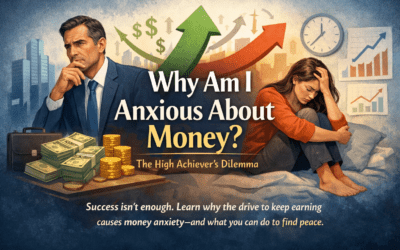UNDERSTANDING FEAR IN OURSELF AND OTHERS
 Imagine you were taught that squirrels were the most dangerous animals in the world.
Imagine you were taught that squirrels were the most dangerous animals in the world.
Squirrels have razor sharp teeth that could tear you apart.
They love nothing more than killing and eating humans.
They can jump higher than 2-story building.
Suppose you completely believed all that?.
Then one day when you were out walking in the forest and you saw a squirrel – How would you react?
Terrified? Worried? Nervous?
FEAR IS BAD
This is the way you have been raised to think about fear.
You’ve probably been taught that:
Fear is bad.
It’s a sign of weakness.
Brave, successful people don’t have fear.
It holds you back in life and you need to get rid of it.
So you learned to fear your own fear.
You become anxious about your anxiety; you get nervous about your nervousness; stressed about your stress.
HOW DO YOU RESPOND TO FEAR?
Most of us have 2 ways we respond to fear:
- Robotic mode

Like a robot you let your emotions control your every move.
You feel anger and so you yell and scream and lash out.
You feel fear and you run, withdraw or hide.
When you are in robot mode you are not mindful of what you are doing and you are not in alignment with your values.
Instead you allow your emotions to push you around.
This creates the myth that strong emotions are dangerous and we can’t act the way we want unless we can control the way we feel.
2. Avoidance mode
Given that fear most of the time feels unpleasant, we believe it is bad and so we do everything we can to avoid it or get rid of it.
Here are some of the common ways…
Distraction
 We distract ourselves from our feelings by eating, drinking, taking drugs, watching TV, playing video games and even working hard, exercising or cleaning.
We distract ourselves from our feelings by eating, drinking, taking drugs, watching TV, playing video games and even working hard, exercising or cleaning.
Opting Out
Avoid challenging situations that make us uncomfortable by procrastinating, withdrawing, quitting or staying away from people, places or events that scare us.
Thinking
We try to think our way out of them by denying our feelings, trying to be more positive, blaming others, beating ourselves up, problem solving or by asking “Why me?” or imagining “What if..”, rehashing the past or trying to escape by fantasizing the future.
WHEN AVOIDANCE BECOMES A PROBLEM
The more you avoid fear, the more it grows and the more it effects your actions.
For instance, the more time you spend distracting yourself from your feelings, the less time you put into making your life meaningful and rewarding.
If you are out shopping all the time, there maybe big financial costs.
If you are always working hard, there maybe relationship costs.
If you are partying hard, there maybe health costs.
If you are opting out to stay safe and avoiding taking risks, you miss out on opportunities and can get in a rut.
You may procrastinate, so important tasks or projects don’t get dealt with or problems solved.
Your to-do list just gets bigger and bigger.
If you over think, you are spending all your time in your head instead of taking action and engaging in your life.
Beating yourself up makes you miserable.
Blaming others leads to discord in relationships.
Positive thinking can lead to disappointment when things don’t work out as planned.
Fantasizing about the future leads to dissatisfaction with your current situation.
The more you try to get rid of it, the greater the fear becomes and the more negatively it affects your life.
GET BACK ON THE HORSE
After a big fall, most people lose their nerve and become fearful.
Which is why they always recommend getting back up and trying it again to regain your confidence.
The longer you put off getting “back on the horse,” the greater your fear becomes.
Psychologists refer to this as “exposure,” which means staying in contact with whatever you are afraid of until you get used to it with gradual exposure.
This is the technique used with phobias like snakes or heights.
EMOTIONAL AMPLIFIER
 However if your fear is an emotion, feeling or sensation, it’s called experiential avoidance.
However if your fear is an emotion, feeling or sensation, it’s called experiential avoidance.
It is like an emotional amplifier: it takes our fear and makes it bigger and bigger, which makes us want to avoid it more and more.
So what is the alternative?
Grit your teeth and force yourself to go through it?
There is another way of responding to fear that is very different than “just putting up with it” or “tolerating it.”
ANOTHER WAY TO DEAL WITH FEAR
You don’t have to suppress or deny it’s existence.
You don’t have to distract yourself or talk yourself out of it.
You don’t have to self medicate with food, drugs or alcohol.
You don’t have to “fake it until you believe it.”
Click here or the graphic below to set up a complimentary clarity session and let me share with you how.







Recent Comments